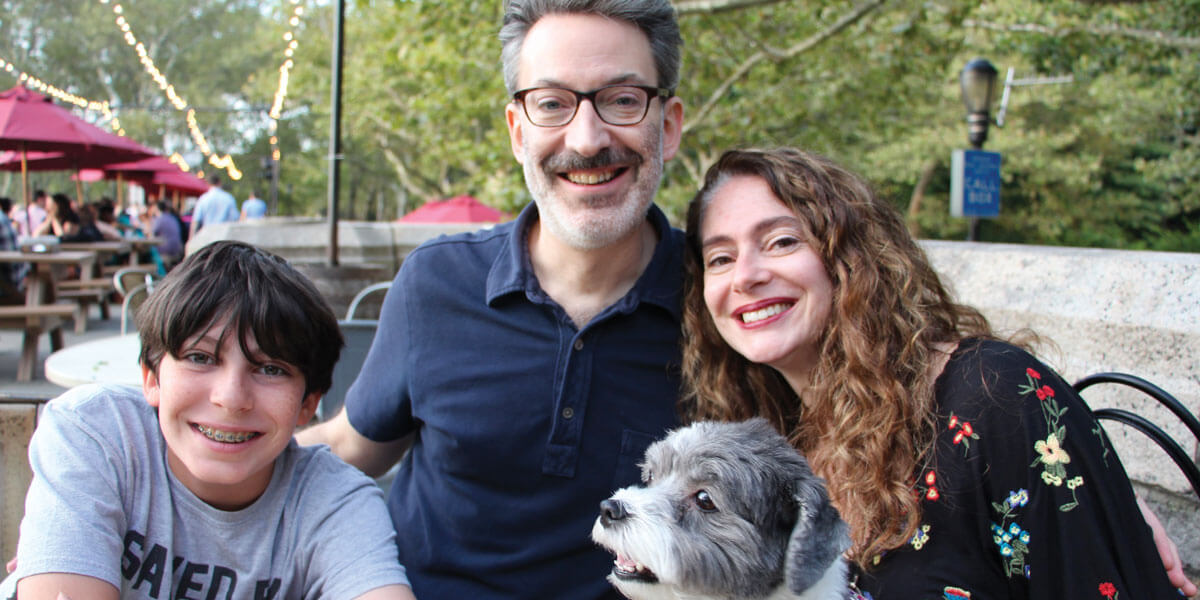It’s an incredible time in the world. It’s a complicated time to be working in education. Nevertheless, Audra Robb ’87 feels lucky to be there.
A curriculum specialist for the United Nations International School (UNIS) in New York City, Robb believes her administrators and colleagues are working hard to do right by students and families—in the midst of a global pandemic and a national racial justice crisis.
“As educators, we’re trying to navigate a new world,” says Robb, who has worked in education for more than 20 years. “Teaching is not a job that people take on for the glamour or glory, especially right now.”
The most important job there is
One thing Robb loves about being an educator is the feeling that she’s doing meaningful work with people who share many of her beliefs and values.
“Teaching is something that comes from the heart,” says Robb, a former New York City public school teacher. “And it is arguably the most important job there is.”
After teaching middle school, she worked for years as an education consultant with the Teachers College Writers Project of Columbia University. In January 2020, she moved to UNIS, an internationally recognized independent school founded by United Nations parents and guided by UN ideals.
At UNIS, she develops curriculum and works with teachers on pedagogy development. She demonstrates lessons and teaching techniques and coaches teachers on applying them in their classes.
“I love teachers,” she says. “My focus has been teachers for 16 years.”
She works to break down walls that isolate teachers from one another and help them work together as a team—something that studies show leads to sustainable school growth.
“When you work with teachers on their teaching, it gets very deep,” she says. “You’re discussing what should be better in the world, what you believe about kids and how they learn, what it means to grow humans.”
How teachers can help end systemic racism
One way Robb and many of her colleagues believe the world could be better is through an education system that serves black and brown students consistently in the way it has served white students.
“Systemic racism has been around a long time,” she says, “but there is a new insistence on looking at it. And educators are right there in the mix of that.”
She says those in her education circles are engaging in productive conversations around race to prioritize the issue in a professional field with competing demands.
“You just can’t ignore it right now,” she says.
Even at diversity-focused institutions like UNIS, she says it’s important to continue working to end racism.
“It’s easy to become complacent with the demographics of your school,” Robb says. “We need to think about messaging and be intentional about it.”
With her background in English and literature, she believes one entry point for anti-racism work is the texts students are assigned to read—and how those texts represent race.
“A lot of English departments are trying to think about what our canon is today,” she says. “In many cases, it looks the same as it did in 1970, and that’s a problem. America has changed, and it didn’t even look that way then. It’s a heavily fought battle in some places to get new books on lists and get some books off lists.”
Robb believes it’s also critical to examine the teacher’s role in the classroom, including their language and any implicit bias that affects their students.
“It’s a lot to wrestle with as educators, but it’s where we’re at,” she says. “And I think educators are uniquely privileged to start making changes that make a difference right away.”
Where you never feel boxed in
So, how did Robb end up in this privileged professional field?
First, there was Colorado Academy Head of Upper School and English teacher Fran Scoble.
“She was my hero in life,” Robb says. “She made a really huge impact on me, so it feels natural that I became an English teacher.”
And then there was Vocal Music Director Cindy Jordan—“a hugely important person to me.” Thanks to Jordan, Robb has incorporated music into her life to this day. She and her husband both sing in a choir, and her teenage son attends a school focused on music and the arts.
“All my teachers at CA made an impression on me,” says Robb, who also played field hockey and tennis, worked on the literary magazine, and served as class president for two years. “They were people I really looked up to and thought were important in my life.”
And when the opportunity arose for the long-time public school educator to move to an independent school, her experience at CA led her decision-making.
“I looked at all the interesting things that my CA classmates ended up doing in life,” she says. “And I remember the way CA treated students as individuals and allowed them to be many things: a good student, an athlete, an artist, a musician. You didn’t get locked into one part of your personality.”
Those memories helped her feel good about switching from a public to independent school milieu. And now, as an educator herself, she tries to provide the same experience for students that CA gave to her.
“At other schools, you can feel boxed in, but not at CA.”
